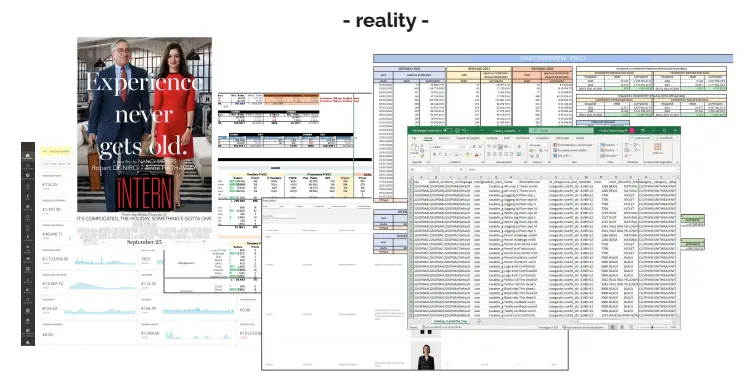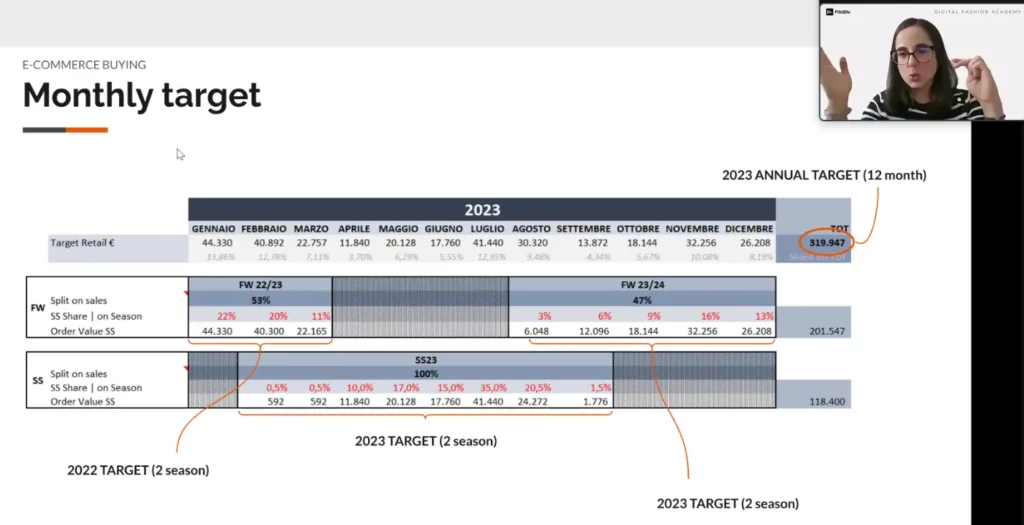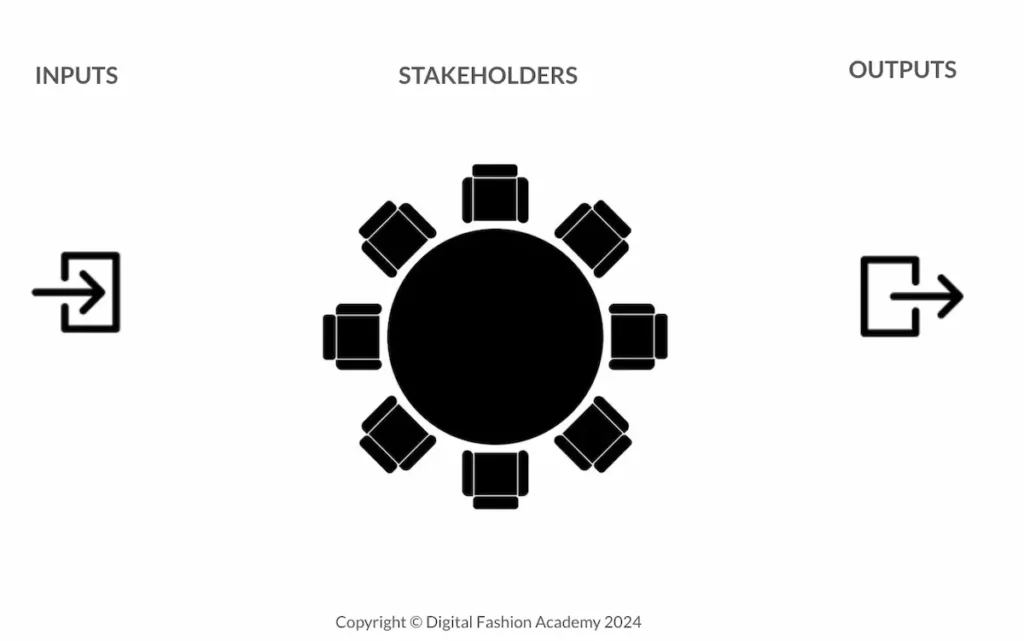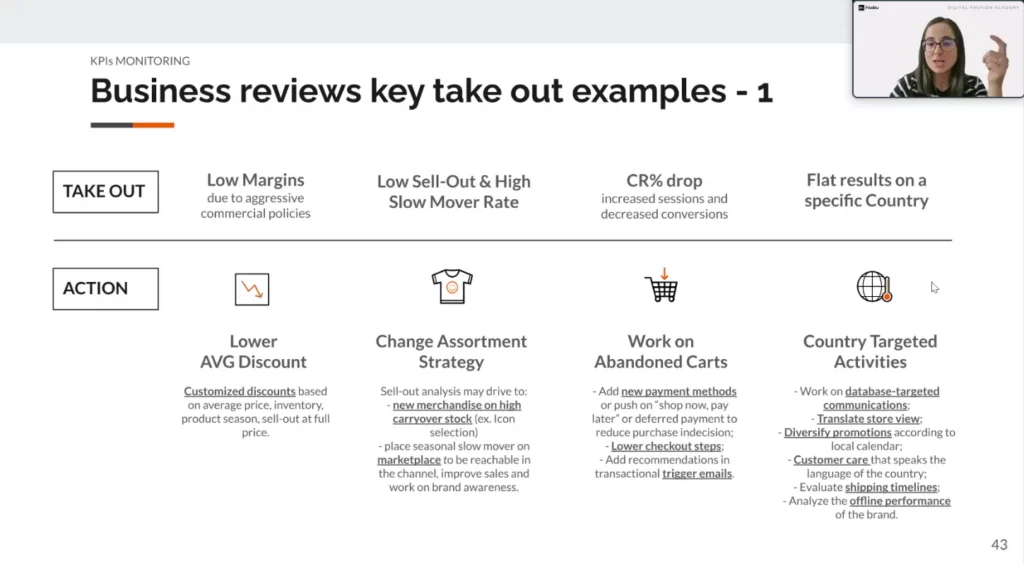We were delighted to host Ilaria and Elisa from Filoblu, a leading e-commerce services provider for the fashion industry, at the Digital Fashion Academy. Their expertise in online store management made the training sessions both insightful and engaging, enriched by their extensive experience, real-life examples, and hands-on workshops.
Read on for some insights.
- The most important role in fashion ecommerce: the online store manager.
- Ecommerce Store Manager: a pivotal role
- The skills required for the ecommerce store manager job
- Key responsibilities of online store managers
- Ecommerce Merchandising Planning
- Implementing the strategy
- Differences between E-commerce Director and E-commerce Store Manager
- Ecommerce Director
- Store Manager
- Looking for training for online store management?
- About the teachers
- Elisa Elena Franzoso
The most important role in fashion ecommerce: the online store manager.

The online store manager is a pivotal role, that requires a very specific skillset in order to fulfil all the different activities and responsibilities of the job.
Starting from the job title itself the online store manager is responsible at 360° for reaching the ecommerce targets set by the Ecommerce Director, VP or DTC Director.
In most cases, the online store manager starts from the annual target and breaks it down into months, weeks and days and he/she is responsible for meeting the daily targets.
Ecommerce Store Manager: a pivotal role
The online store manager is a pivotal role. It requires strong relational, organisational and communication skills to keep all the actors involved the ecommerce processes up to date.
The ecommerce store manager is responsible for example for:
- Coordinating with the Operations Manager or the Logistics team in order to ensure that the logistics is informed of expected volumes of sales, expected peaks, special requirements such as additional packaging materials. And viceversa the store manager needs to be informed about any potential issues in the logistic chain.
- Coordinating with the Buying and Merchandising Team in order to ensure the rights products and the right quantities of product are allocated to the online store stock.
- Coordinating the production of content for the ecommerce website: graphics, such as banners, product photography, in collaboration with a Digital Production Manager, copy production and translations and so on.
- Coordinating with the tech team for the implementation of any specific promotions or commercial actions that require a configuration on the ecommerce platform.
The skills required for the ecommerce store manager job
As a consequence of the responsibilities of the online store manager, the skills required and varied and specific. He or she needs to have a strong commercial acumen to reach the commercial target and be digitally literate, especially in ecommerce technology and web design in order to manage efficiently the online store and leverage all the opportunity that the digital can offer.
Among the skills required for this job are:
- Planning
- Coordination
- Personal relations
- Analytical skills
- Numerical skills and confidence with spreadsheets;
- Digital Literacy: ecommerce platforms, website performance
- UX and UI design
- Digital Marketing: SEO and Direct Email Marketing
Key responsibilities of online store managers

The online store manager is an operational role with responsibility for the day to day management of the ecommerce store.
The main responsibilities include reaching the daily sales targets by implementing the strategies defined with the management team.
Besides the daily sales targets, the online store manager may be also responsible for reaching other specific goals such as: target gross margin, target stock level. These are financial KPIs are described in detail here in this article >>
While the daily sales targets are monitored on a daily basis, other KPIs maybe analysed and discussed on monthly business reviews.
The store manager is also responsible to create reports that are discussed with the other managers in order to monitor the performance of the online store and take corrective actions if necessary.
Ecommerce Merchandising Planning
The merchandising plan is essential to ensure that the online store has sufficient products to sell, and the right products at the right moment.

Time is of the essence in the fashion business.
As in the example made by Ilaria, receiving a stock of swimwear from the manufacturer too late in the season, it would mean that the ecommerce team will not be able to sell enough quantities in time to reach the target, or that they have to discount more the products and compress the profit margins for the category.
In the lesson Ilaria explained how to structure a merchandising plan for ecommerce that accounts for the seasonal split and monthly sales plan.
In the picture above you can see how the different seasons are split over the year and the monthly planning with the weights of sales.
Daily sales targets
Daily sales targets are established by the ecommerce store manager by taking the monthly sales targets and breaking it down into daily sales.
In order to do this, the online store manager needs to take into account the last year sales, the merchandising plan and the marketing plan. These are the main inputs that the online store manager needs to take into account when planning the daily sales.
This approach is typical of ecommerce and it’s a data driven approach that is represented in the picture below.

Implementing the strategy

The implementation of the ecommerce strategy for a fashion ecommerce store entails taking into account the overall goals for the year, breaking them down into more specific targets and defining the actions to reach these targets.
For example. If the annual goals is to reach a target sales and margin for a specific merchandising category e.g. Women’s Leather Goods. The store manager will break it down into:
- Monthly and daily sales target
- Discount level and discount actions
- Sales targets for sub-categories such as leather wallets, leather bags, leather belts
- Promotional and communication activities to reach those goals
Differences between E-commerce Director and E-commerce Store Manager
The Ecommerce Director and Ecommerce Store Manager have different responsibilities. If the first one in accountable for the overall performance of the online store and digital channels the second one is account for the results of a specific channel or reaching specific targets.
Ecommerce Director
- Is accountable for the performance of more digital channels
- Definition of the yearly Ecommerce and Digital Budget in agreement with the CXO
- Responsible for 3 and 5 years roadmap
- Coordinating Digital Marketing
- Projects prioritisation
- Omnichannel strategy
- Find digital suppliers and manage competitive bidding processes and negotiations
- Manage Human Resources
- Manage stakeholders
- Reporting on channel results
- …
Store Manager
- Is accountable for reaching specific goals within the ecommerce goals
- Creating monthly and daily budget from yearly budget
- Planning actions and coodinating execution to reach the targets
- Support Buying and Merchandising
- Coordinate creation of banners and digital assets for the website
- Coordinate with Ecommerce team members: visual merchandiser, tech, ecommerce operations manager, buyer
- Produce daily sales report and analysis
- …
Looking for training for online store management?
Look no further! Joing our online store management course, available online live and on demand. Study with our expert teachers, learn the best practices, tools and master the KPIs to success in this role and improve performance of your ecommerce store.
About the teachers
Ilaria Sartorato

With a degree in Languages and a specialization in International Relations at Ca’ Foscari University in Venice, Ilaria began her professional career in the commercial area of fashion companies.
In 2015, she landed in FiloBlu, fully embracing the innovative spirit and ambitious growth goals of the company. She immediately joined the Customer Care team and then pursued her path in the
management of digital sale channels as Online Store Manager.
In 2016, she deepens her knowledge of the digital world thanks to the Master’s degree in Web marketing & Social media at IULM. Today, thanks to her significant experience in the industry, Ilaria holds the role of Retail Manager, strategically supporting the companies on the growth of their online business.
Elisa Elena Franzoso

With over 10 years of experience in the retail and communication fields, Elisa has been part of FiloBlu‘s team since 2021 with the role of E-Commerce Store Manager.
Following her studies in Oriental Languages and Cultures and a specialization in Cultural Management and Communication at Keio University in Tokyo, her career path has focused on coordinating initiatives in international contexts for important Luxury and Made in Italy brands.
Today Elisa is dedicated to the management of online sales channels for fashion and luxury brands, with significant international development targets.